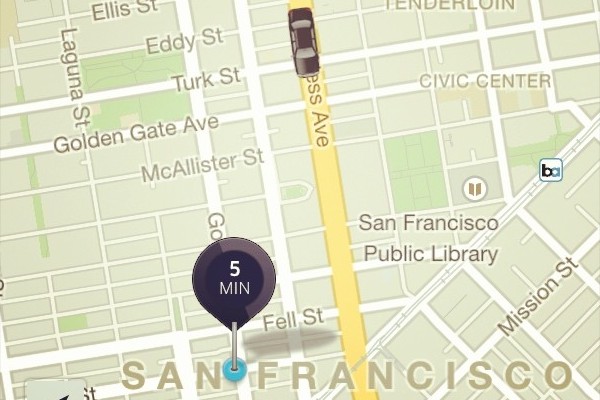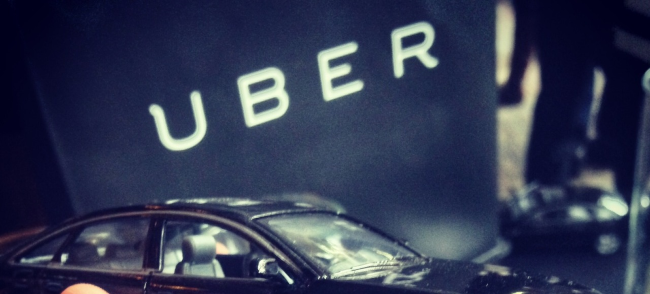Edit
An insight into the Sharing Economy
Much is spoken of the sharing economy with Uber and AirBnB seen as their poster children. They're different, Uber is an evolution of 20th century franchise business while AirBnB is an auction/liquidity service.
- Uber's is a franchise it borrows, for free, the capital involved in the vehicle ownership and places standards on its operators and measures their performance. (It has operational control) and its de-facto model is to dump cost everywhere, but primarily on its operators. It's second key tactic is the casualisation of its work force It also ignores the public regulations set up which they call a restraint of trade, and many others call a public minimum standards and while I oppose the growing thoughtless habit of performing a criminal records bureau search as part of a growing number of hiring processes, you can be sure that Uber are not doing this, nor demanding either route skills nor transparent/regulated fares. You can also bet they don't pay their fare share of corporation tax.
- However even in California the law is catching up with them. In one case, they have ruled that vehicle operators are employees, so lets hope this follows them across the US and then the Atlantic.
 So, About That Uber RulingSome bad news broke for Uber today - the California Labor Commission ruled that one of the company's drivers was an employee. Uber has long insisted that those drivers are independent contractors, not employees, and that's a key part of the business model. However, Uber's situation isn't nearly as dire as it first seemed.
So, About That Uber RulingSome bad news broke for Uber today - the California Labor Commission ruled that one of the company's drivers was an employee. Uber has long insisted that those drivers are independent contractors, not employees, and that's a key part of the business model. However, Uber's situation isn't nearly as dire as it first seemed.- In the UK, we have been dealing with illegal sub-contracting and its consequent tax avoidance for a long time. The most recent legal iteration was 15 years ago with the reform of the tax code leading to IR35. Sub-contractors cannot be directed, if sub-contractors fail the 'disguised employment' tests then the whole of their revenue is deemed to be income for the purposes of calculating income tax and employee national insurance liability. This law is written to protect the top of the food chain; once the corporation has paid a premium on the time to avoid the NI charges, they don't want the HMRC chasing them.
- Operational control is another significant test, also for their accounting standards. The organisation with operational control of the asset, must carry it on their books. I expect they minimise their legal liability by arguing that the assets and time can be sold elsewhere and that their control is not full-time but iIt's clear that while on the job they have operational control, so good luck with that one.
 Uber drivers are employees, California Labor Commission ruling suggestsThe California Labor Commission has issued a ruling in favor (PDF) of a former Uber employee, ordering the company to reimburse her for costs incurred while driving for Uber. The Commission's decision says that Uber is liable for these costs because its drivers are employees of the company, something that Uber has been battling to disprove in several courts around the country.
Uber drivers are employees, California Labor Commission ruling suggestsThe California Labor Commission has issued a ruling in favor (PDF) of a former Uber employee, ordering the company to reimburse her for costs incurred while driving for Uber. The Commission's decision says that Uber is liable for these costs because its drivers are employees of the company, something that Uber has been battling to disprove in several courts around the country.- Uber is just another company that makes mediocre software and charges too much for it and oppresses its workforce. Its growth is being paid for by their zero-hours workers, their regulated good citizen competitors and in market terms it's an attack on self employment. It's an example of a Schroedinger's entrepreneur, both a zero-hours, casual workforce and entrepreneurial self employed.
- Don't use them! In London, we have Dial-a-Cab which is a worker's co-op. Well since its members are all self employed, maybe not, but the market is an illustration of the new porus boundaries between entrepreneur and worker. Not every one wants to be in business, some just want to do what they're good at and it's always the case that the accountants and sales people are more highly rewarded than the operative and in Uber's case, the investor, Of course the tax payer is last in the queue.
 Dial-a-Cab - driving down your carbon footprintIf you have an iPhone, Android or BlackBerry 10 and would like to book a taxi using your credit card or account, you can now download our FREE App from the App store by clicking the relevant button below. With a fleet of over 2,500 taxis, Dial-a-Cab are the largest supplier of licensed taxis in Central London.
Dial-a-Cab - driving down your carbon footprintIf you have an iPhone, Android or BlackBerry 10 and would like to book a taxi using your credit card or account, you can now download our FREE App from the App store by clicking the relevant button below. With a fleet of over 2,500 taxis, Dial-a-Cab are the largest supplier of licensed taxis in Central London.

